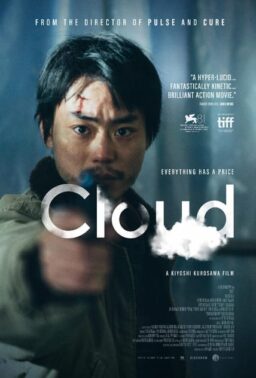1.
“Okay, the Superhero genre is boring. So let’s make better superhero movies“: The Stake‘s Christopher Finke responds to Matt Zoller Seitz’s editorial “Things Crashing Into Other Things: Or, My Superhero Movie Problem.” Related: Two writers at The Atlantic offer their own responses to Seitz’s piece: Tim Wainwright and Derek Thompson.
“Zoller
Seitz hits the genre (and its fans) the hardest, but also with the most
accurate shots. Yes, the action scenes are often incomprehensible; acting
talent often comes second to looking the part; fans do hold on to ‘fleeting
moments of special-ness’ to defend a films that are, as a whole, mediocre. But
the problem with all of these genre assessments is that they are just that:
high-level assessments of a genre. What this level of analysis forgets (though
Wainwright hits on the point) is that a large majority of everything is
low-quality. Whatever genre you’re considering, it’s probably on average pretty
terrible. Because most movies, just like most television and most books, are terrible.
Popular appetites and risk-averse business decisions have something to do
with this general mediocrity, but not everything. Some of it also comes from
the fact that making quality films is really difficult. Levelize the
quality of any genre and you’ll find mediocrity at best.”
2.

“Pamphlet for Activist Film Criticism“: Members of the German Film Critic’s Association have released and signed an official statement, written in honor of Critics’ Week at the Berlin International Film Festival, declaring that they will “no longer accept the abuse of film criticism as service” (scroll to the bottom of the linked page for the English translation).
“Criticism
itself faces a drastic dilemma. To articulate itself, it needs to adapt its
thinking to the norms and conditions of contemporary markets. During this
process, it trades in its sovereignty and becomes service. Independent thinking
is replaced by reflex. Those who turn in free thinking lose the capability of
questioning the establishment. Frameworks are declared as determinants. Visions
are abandoned. The lack of economic perspectives must no longer lead to
intellectual assimilation. Those who turn in free thinking subject themselves
to consensus and compromise. A productive culture of debate becomes impossible.
But controversy and debate are essential for the unfolding of vivid discourse.
Without discourse, there is no culture. Without discourse, there is no
knowledge. In fact, ignorance is fostered.”
3.

“‘Searching for Sugar Man”s Oscar-Winning Director Dead at 36“: Vanity Fair‘s Julie Miller reports on the tragic death of documentary filmmaker Malik Bendjelloul.
“‘Searching for Sugar Man’’s
subject Sixto Rodriguez, the fabled folk
singer whom Malik set out to find in his wonderfully moving documentary,
performed a concert on Tuesday night in Detroit. Afterward, he spoke to Billboard, revealing that the news of
Bendjelloul’s death was ‘a shock.’ ‘I just found out about it a couple of hours
ago. He was a very talented man and hard-working artist—he proved it by hitting
an Academy Award his first time out. My deepest condolences to his family. Rest
in peace.’”
4.

“Fat woman talking: ‘Louie’ starts a necessary conversation“: Libby Hill writes an excellent piece for The A.V. Club on how Louis C.K. “has given voice to the fat girl.” See also: Hill’s recent article for RogerEbert.com, “In Defense of Norma Bates or How ‘Bates Motel’ Radically Reinvents ‘Psycho.’“
“Fat is a dirty word.
It’s an admonishment and a death sentence, especially in the world of dating,
and even more so in the world of pop culture. But being fat is not a burden
that weighs on everyone equally. It’s no accident that ‘So Did The Fat Lady’
falls in episode order directly after ‘Model,’ an episode featuring Louie
improbably hooking up with a young blonde woman (played by Yvonne Strahovski).
The question both episodes ask is: What cost are we willing to pay for a
relationship? (Even one that lasts only a night?) In ‘Model,’ the price Louie
pays for a completely unexpected night of passion with a beautiful model is
astronomical, at least financially. No matter how unintentionally, it saddles
him with a debt he’ll pay the rest of his life, and yet, by the end, he’s fine
with it and moves on to greener pastures. In ‘So Did The Fat Lady,’ however, he
encounters a price he is unwilling to pay. For him, the perceived cost of
holding a fat woman’s hand in public is petrifying because of the horror that
being with Vanessa may be where he belongs. The model may have cost him his
dignity and his money, but the fat lady would cost him his manhood.”
5.

“Why Jill Abramson Was Fired“: The New Yorker‘s Ken Auletta makes his case for why the New York Times‘s first female executive editor in its 160-year history was fired after less than three years on the job. Related: New Republic‘s Rebecca Traister tries to explain the “humiliating firing” with her piece, “I Sort Of Hope We Find Out That Jill Abramson Was Robbing the Cash Register.” See also: The Guardian reports that Natalie Nougayrède, editor of the French newspaper, Le Monde, has quit after enduring “personal and direct attacks.”
“As with any such upheaval, there’s a history behind it.
Several weeks ago, I’m told, Abramson discovered that her pay and her pension
benefits as both executive editor and, before that, as managing editor were
considerably less than the pay and pension benefits of Bill Keller, the male
editor whom she replaced in both jobs. ‘She confronted the top brass,’ one
close associate said, and this may have fed into the management’s narrative
that she was ‘pushy,’ a characterization that, for many, has an inescapably
gendered aspect. Sulzberger is known to believe that the ‘Times,’ as a financially beleaguered newspaper, needed to retreat
on some of its generous pay and pension benefits; Abramson had also been at the ‘Times’ for
far fewer years than Keller, having spent much of her career at the ‘Wall Street Journal,’ accounting for some of the pension disparity.
Eileen Murphy, a spokeswoman for the ‘Times,’ said that Jill
Abramson’s total compensation as executive editor ‘was directly comparable to
Bill Keller’s’—though it was not actually the same.”
Image of the Day

Stephen Dowling of the BBC pens a wonderfully optimistic piece about “why filmmakers may return to old-school special effects.” Gavin Rothery, a special effects supervisor on “Moon,” also gets in a nice dig at the “Transformers” franchise, dubbing it “high frequency noise.”
Video of the Day
In today’s edition of the “Carvajal Corner,” editor extraordinaire Nelson Carvajal presents his latest video essay visualizing the words of writer Jed Mayer. Mayer’s essay “juxtaposes dwindling species of certain animals against their digital counterparts on screen, which seem to grow exponentially, year after year.”












